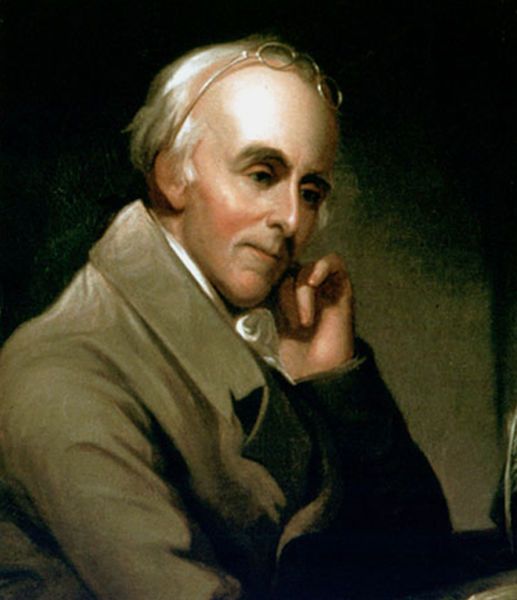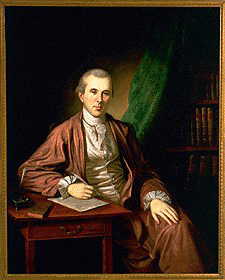Benjamin Rush, a lesser-known founding father, attended the Continental Congress and rather than continue in politics afterward like most of the delegates, went on to serve as a doctor.
Early Life
Benjamin Rush was born on January 4, 1746 in Byberry, Philadelphia County. When Benjamin was eight he was sent to live with his aunt and uncle in Maryland in order to receive a proper education. He attended the school at Cecil County Maryland. When he finished school there, he went to Princeton University. He graduated in 1760 with a bachelor of arts degree.
Revolution

Benjamin Rush, painted by Charles Willson Peale
Public domain image.
When the time of the Revolution came about, Benjamin was an avid supporter and was active in the Sons of Liberty. He was elected to the provincial conference, which was to elect delegates to send to Congress. While there, Thomas Paine consulted Benjamin for advice on a pamphlet he was writing, that became his famous book, Common Sense.
Rush was elected to the second Continental Congress representing Pennsylvania, and was among the signers of the Declaration of Independence. While he was attending in the Continental Congress, he was also serving on the Medical Committee there. After a little time, he decided to use his medical knowledge in the field. When he wasn’t busy with the Congress, Benjamin accompanied the Continental army, helping the wounded. He served both of these roles all the way through the Revolutionary War.
Doctor After the War and Final Years
In 1783, after the war, Benjamin Rush served on the staff of the Pennsylvania Hospital. He remained a member of their staff until he died. In 1791, he became a professor of medical theory at the University of Pennsylvania. Many would say that his medical knowledge was not adequate, even for the time. Other physicians believed that he advocated bleeding too much, and he suggested it for almost any illness.

Benjamin Rush, painted by Charles Willson Peale
Public domain image.
During his later years, Benjamin Rush participated in many different political disputes. One of which was that of criminal punishment. He believed that public punishment, such as putting someone in stocks, was extremely foolish. He thought that it defeated the purpose because it simply made people angry and did not help them to change their ways. Rush suggested that there were better ways to deal with them in private. He went on to be extremely outspoken against the use of capital punishment. Due to his making it a public issue, Pennsylvania ended up outlawing the use of capital punishment in their state for all crimes other than first-degree murder.
He strongly advocated social reform. He fought for women’s rights, slaves’ rights, free public education, and his study of mental health disorders (which he believed were the root cause of all physical health disorders) made him a father of modern psychiatry.
Rush continued in the public life, participating in different movements until he died on April 19, 1813. He lived a good life, and he was a good man full of fire, and unafraid to fight for what he believed.


